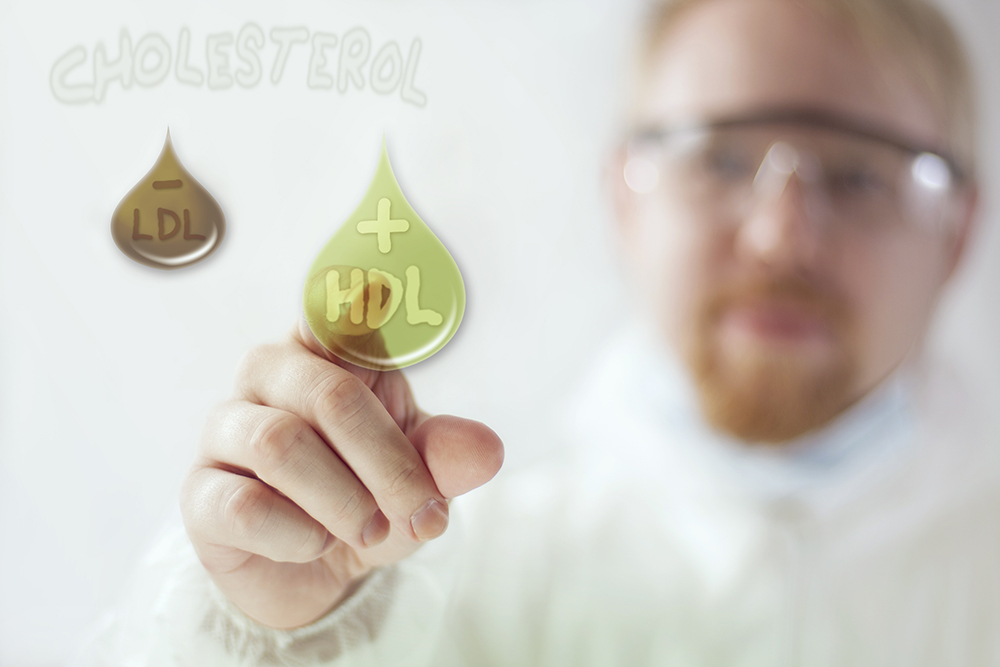Are there really benefits associated with very low LDL cholesterol levels?
 Cholesterol is not all bad.
Cholesterol is not all bad.
Cholesterol is a type of fat which plays an important function in every cell wall. Cholesterol is used by the body to make other substances, such as hormones, which are essential to our health and well-being.
While cholesterol is found in some foods, the body also produces needed cholesterol in the liver.
Low-density-lipoprotein (LDL) cholesterol carries cholesterol from the liver to cells.
High-density-lipoprotein (HDL) returns “extra” cholesterol in circulation to the liver.
Diet and lifestyle choices, as well as health conditions, can cause the cholesterol balance gets skewed and heart disease risk rises when LDL levels become too high and/or HDL levels drop too low.
This is where many patients are prescribed statin medications to lower LDL cholesterol levels back to a healthy range, reducing heart disease risk.
No connection between very low LDL cholesterol levels and mortality?
There was a publication not too long ago claiming no association to be found between LDL cholesterol and mortality.
This was a review of 19 studies with over 68,000 participants finding no evidence between LDL cholesterol and mortality.
I was interested to see this because it seems like we are taking it too far in our efforts to lower LDL cholesterol to lower and lower levels. Cholesterol does have a relevant role in health.
Statins are still warranted in many cases to lower LDL cholesterol
Unfortunately, the study methodology was weak and the research doesn’t hold up under closer scrutiny. There is stronger researcher supporting the connection between using statin drugs to lower LDL cholesterol for reduced heart disease risk.
How low is too low for LDL cholesterol
Current recommendations for people at cardiovascular risk seem to be the lower the LDL cholesterol, the better.
An LDL cholesterol level below 70 mg/dL is the standard goal if you are at high risk for heart disease.
During the past 10-years there has been new research leaning towards very low LDL cholesterol levels, dropping guidelines even lower to less than 60 mg/dL. These studies are seeing the risk for heart attack and other cardiovascular events reduced further with this additional decrease in LDL cholesterol levels.
What is the right LDL cholesterol level for you?
If you are not at high risk for heart disease, aim for an LDL cholesterol of 100 mg/dL or less. It you are at risk for heart disease, discuss goal levels with your doctor.
Statins are frequently prescribed to lower LDL-cholesterol levels, but lowering levels through diet and lifestyle changes is a valid option for many individuals. It typically takes 4-6 weeks to see results. For further guidance on diet and lifestyle changes to lower cholesterol levels, access my free ecourse “How to Lower Cholesterol in 8 Simple Steps” here.
All the best,
Lisa Nelson RD
Health Pro for HealthCentral



